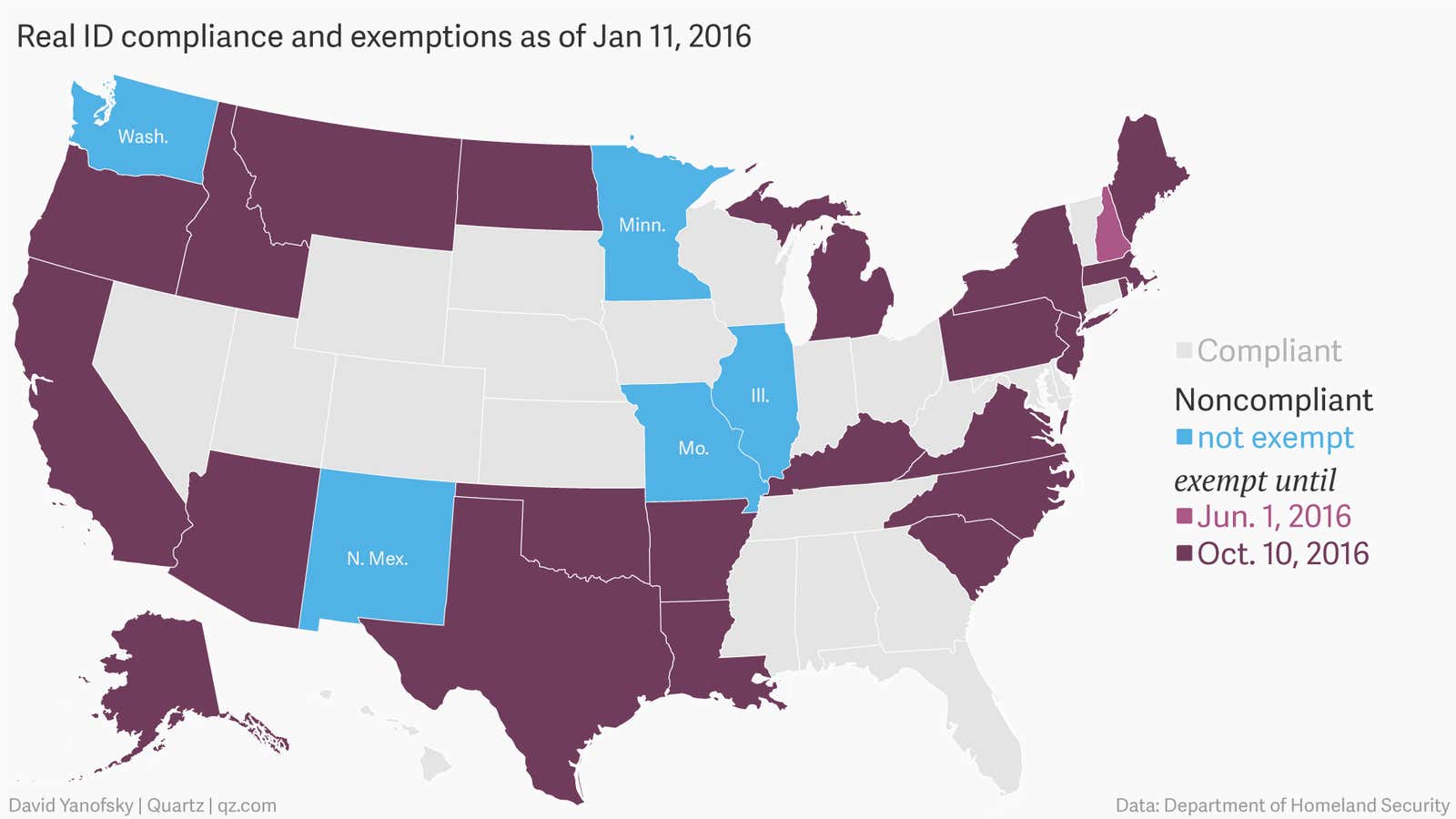The US Department of Homeland Security announced today that the looming deadline for all travelers to be required to show driver’s licenses that meet federal standards at airport checkpoints will be October 1, 2020. The announcement comes after years of delays in implementing the post-9/11 security recommendations.
The requirements—known as Real ID—are an attempt at increasing security not just though the addition of certain features to driver’s licenses themselves, but also through administrative mandates to state agencies such as requiring specific documents, verifying the immigration status of applicants, performing background checks on employees who process license applications, and participating in cross-state sharing of drivers’ personal information.
Not everyone in the US will be able to use their drivers license at the airport until the deadline announced by DHS. Travelers with driver’s licenses issued by states that are non-compliant with Real ID requirement and have not been granted an extension by DHS will have only two years—until Jan. 22, 2018—until being required to show a different type of ID.
So far, 22 states have implemented driver’s licenses that meet Real ID requirements. Presently, the mandate to reject drivers’ licenses from non-compliant, non-exempt states is only in effect at federal buildings that require ID and nuclear facilities.
As of Jan. 11, five states will be determined by DHS to be non-compliant, another 23 have temporary exemptions.
According to a DHS official, who spoke on the condition of anonymity, a passenger traveling with a driver’s license issued by a non-compliant state after the relevant deadlines will be treated as if they have no ID at all. That, however, doesn’t mean that they’ll be prohibited from traveling.
There are procedures in place to deal with passengers who have forgotten or lost their identification, had it stolen or are under 18 and therefore not required to show their ID at airports. After undergoing extra screening, they can be permitted to fly—assuming you can still make your flight. And of course certain other forms of ID can still be used at checkpoints regardless of these rules, such as passports, military ids, and permanent resident cards.
